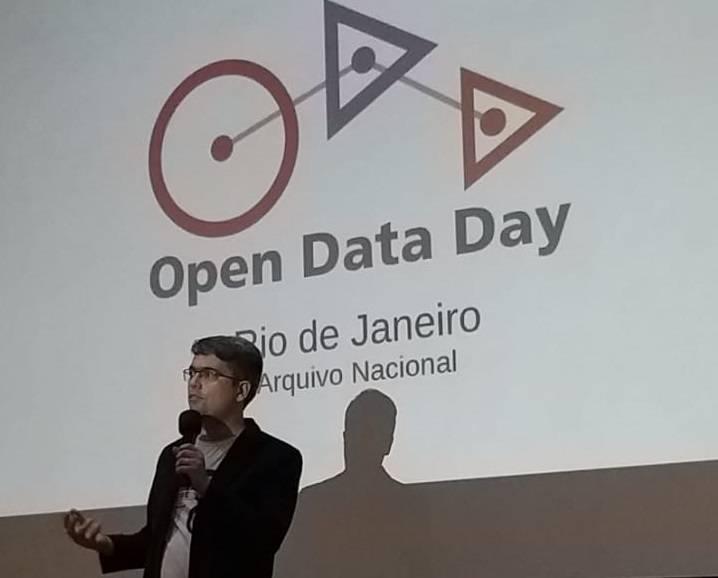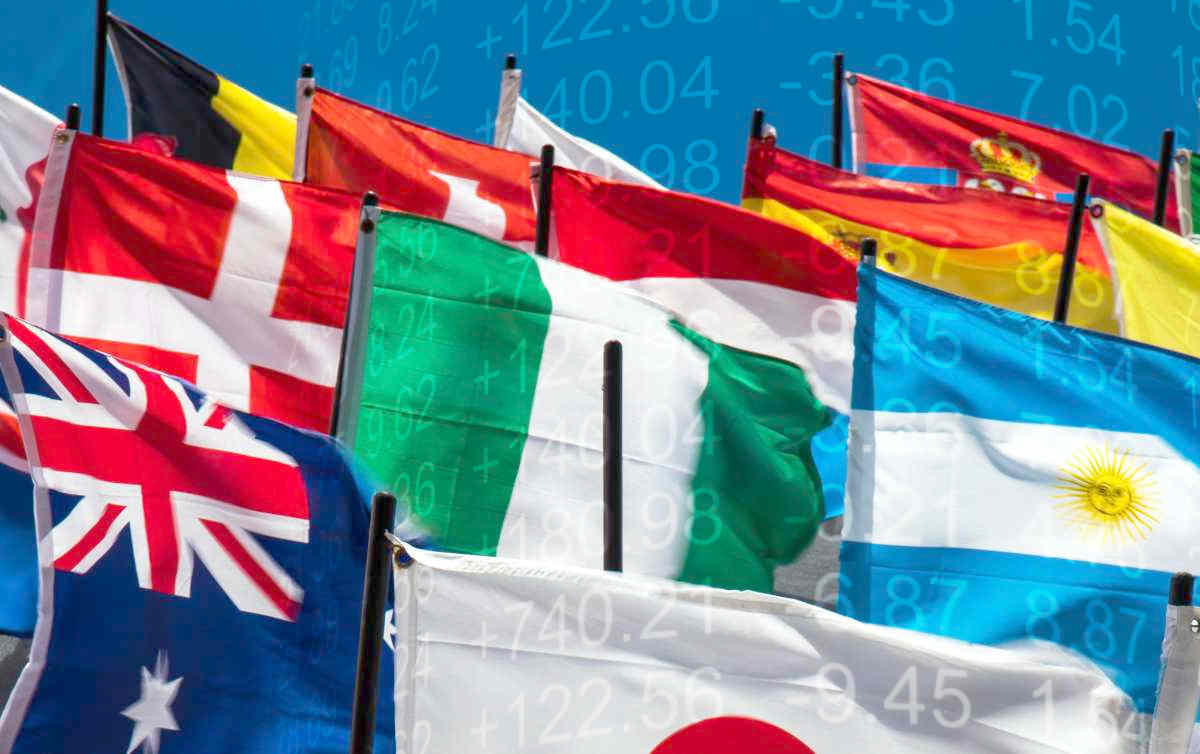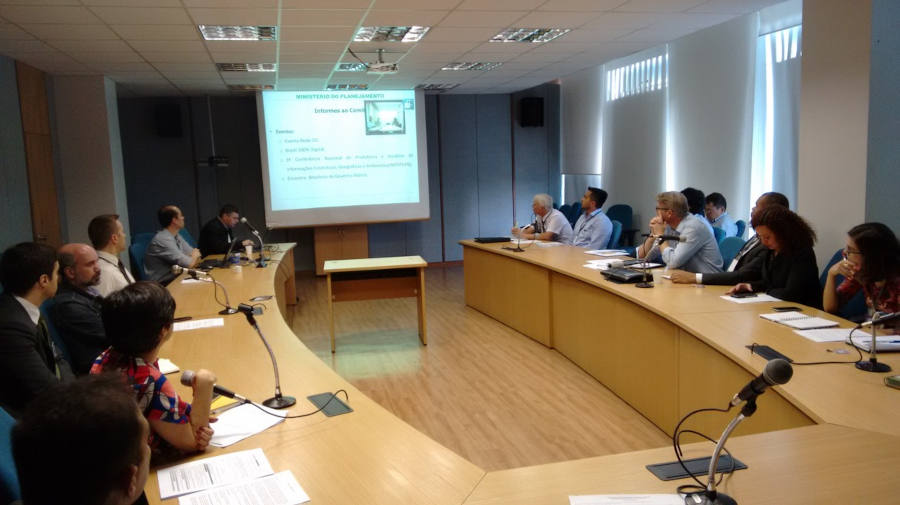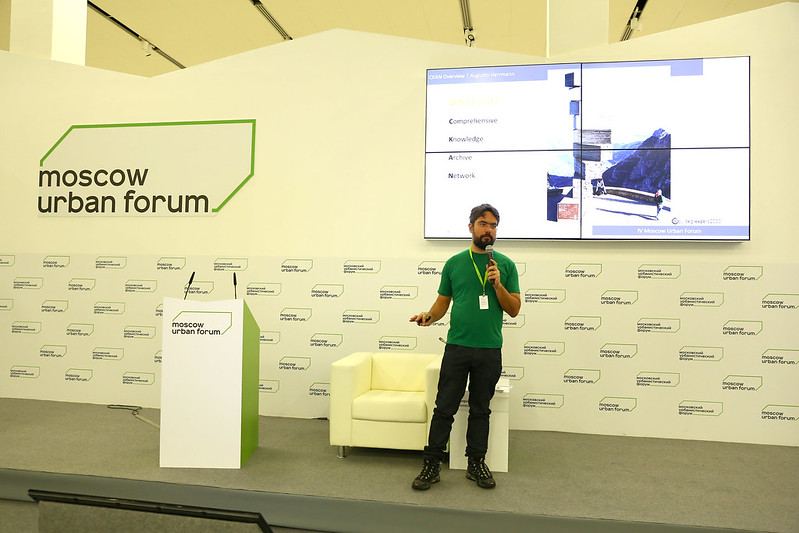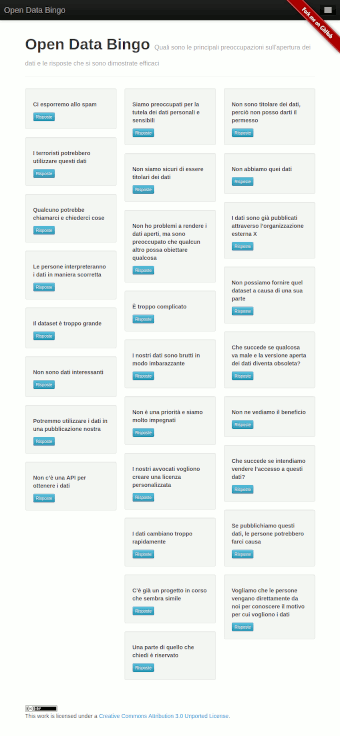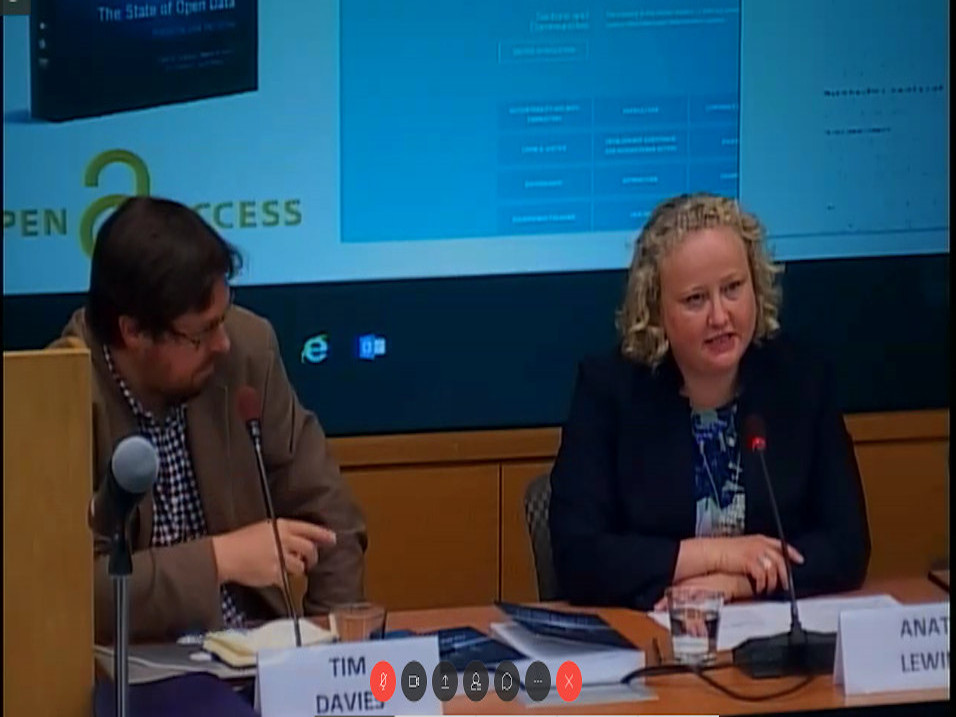Augusto Herrmann
Blog posts
Agreeing under coercion is not consent: how the State contributes to subjugate us to Big Tech
on April 27, 2025
For many years, people have been conditioned to check the box or click the button, without reading, stating that they agree with the “terms of service” and “privacy policy” of every online service they want to use, without reflecting for a second on the consequences. The devil is in the details, as many times, in the fine print, personal data usage practices are hidden, which, if read, the person would probably not agree with. For example, the sharing of personal data with partners for marketing purposes and other unspecified purposes. Most often the person does not have the option to disagree, for various reasons. For example, due to social pressure, considering that their entire social circle uses the same messaging…
Removing Article 19 of the Civil Rights Framework for the Internet Would Threaten Small Digital Communities and Reinforce the Monopoly of Big Tech
on November 28, 2024
The Supreme Federal Court (STF) of Brazil will judge in the coming days the constitutionality of Article 19 of the Civil Rights Framework for the Internet, a topic that has generated intense debates in society. There are 4 lawsuits questioning the validity of the provision, including a Direct Action of Unconstitutionality (ADI) and an Allegation of Breach of Fundamental Precept (ADPF). What does the law say? Article 19 of the Civil Rights Framework for the Internet establishes that: Art. 19. Com o intuito de assegurar a liberdade de expressão e impedir a censura, o provedor de aplicações de internet somente poderá ser responsabilizado civilmente por danos decorrentes de conteúdo gerado por terceiros se, após ordem judicial específica, não tomar as…
An experiment with translingual rhymes
on May 15, 2024
For some time I have been curious about how words in one language could possibly rhyme with words in a another language. Often sounds present in one are absent in another. When composing a verse one must carefully choose a word whose ending would have a phoneme that would have a close approximation in the language of the next rhyming verse. I searched around a bit, but could not find a poem that consistently used this stylistic choice. It is understandable that this idea is not a popular choice, perhaps due to the expectation that readers would need to be fluent in two or more languages in order to understand it. Despite that, I wanted to experiment with this idea….
(Im)positive Register: Know which data of yours is the Central Bank sharing
on September 22, 2023
As a follow-up to the previous post, with help from Bruno Morassutti from Fiquem Sabendo, we found out that the entirety of the agreements between Brazil’s Central Bank (BCB) and the credit reporting agencies is available at the institution’s website transparency section. They all have the same content, except for the identification of the credit reporting agency, the respective internal department and signatories. All five also share the same day of signature: September 4th, 2023. Here are the links to each one of them: Agreement with Boa Vista Serviços S.A. Agreement with QUOD Gestora de Inteligência de Crédito S.A. Agreement with Serasa S.A. Agreement with SPC Brasil Agreement with TransUnion Brasil Sistemas em Informática Ltda Data that the credit reporting…
(Im)positive Register: Brazil’s Central Bank will share your data with credit reporting agencies
on September 8, 2023
Brazil’s Central Bank (BCB) has published this Monday in the Official Gazette extracts from agreements with five major consumer credit reporting agencies in Brazil to share data about Brazilian bank clients: Quod TransUnion Boa Vista Serviços Serviço de Proteção ao Crédito (SPC) Serasa The terms of the agreements state that they are to come into effect immediately after this publication (which is September 4th, 2023), and also state that they are to remain in effect indefinitely. The agreements had been announced in March by the BCB in a note on its website, without much fanfare, and to no effective repercussion at all, considering that I couldn’t find a single news article that mentioned them. The existence of such agreements for…
Techdirt removed from DuckDuckGo and Bing search results
on July 27, 2023
Techdirt is one of the go-to places to get well informed about where technology and societal issues meet, about the often unforeseen repercussions of proposed legislation on tech issues and about tech policy in general. Founded by Mike Masnick in the 1990s, it has a frequently updated blog, a thriving community of people commenting every post and is also a podcast. I have been an avid reader and listener since the early years of the commercially available internet. This morning I was trying to find an article on Techdirt, as I usually do to find references to texts I write on this blog. Being a privacy conscious person, I always use DuckDuckGo for my searches. To my surprise, I couldn’t…
The Road Police Panopticon: the latest data grab
on May 16, 2023
The Brazilian Federal Road Police (PRF), after having just being denounced by the news outlet The Intercept for acquiring biometric data of all Brazilian drivers last month (more on that below), strikes again with a new mass surveillance measure: identifying and recording the passage of every vehicle in 1,921 remote camera monitoring checkpoints, by using license plate recognition. The process is under a lightning fast public consultation, which just opened last Thursday, May 11th, and is already closing today. Such short notice does gives civil society almost no time to analyze the proposal or to organize any type of mobilization against it. A history of vehicle movement mass surveillance in Brazil Successive governments in Brazil have been adamant on the…
CNEN and the Return of the Body Snatchers
on March 12, 2023
Air travel gets to be a worse experience for travelers with every passing year. Steadily and starkly rising prices and separately charging for each and every idea companies can come up with for getting more money. Airport security keeps getting more inconvenient procedures and passengers get less and less comfort and privacy. Kiosks and self-service machines for everything replacing human services. Luggage conveyor belts that drop your suitcase from a storey high and break it. Mandatory facial recognition systems as replacement for boarding passes that do not disclose what they do with your photo or how long they keep it once they take it. When a bad novelty appears in other countries, some agency decides years later it’s time to…
Open data: what has changed in the last 4 years
on December 31, 2022
4 years after the Office the Comptroller-General received responsibility for the open data policy of the Brazilian Federal government, the time has come to evaluate what has changed in the period. How was it in the beginning: from 2010 to 2015 Before that, however, let’s remember a bit about how the open data policy had been conducted until then. I assumed a public position in 2010 at the then Ministry of Planning, even though it was financially disadvantageous for me, just due to my interest in the theme of open data and the desire to build as a public policy something that was already blossoming in the United States and the United Kingdom, which launched their open data portals in…
Update on Senacon’s decision on Meta’s data sharing
on December 20, 2022
Almost a month ago I wrote about how Senacon, which is the National Secretariat for Consumer Defense in Brazil, saw no harm in WhatsApp’s new metadata sharing practices announced by Meta last year. Now, thanks to a Access to Information Law request made by data journalism-focused news agency Fiquem Sabendo, we learn more about the alleged reasons behind the decision. In response, they’ve obtained access to Technical Note no. 42/2022/CGCTSA/DPDC/SENACON/MJ, which is about Preliminar ascertainment for supposed violations of consumer rights related to the sharing of personal data from WhatsApp to the Facebook Inc group of companies in violation of the Brazilian Civil Rights Framework for the Internet and Consumer Protection Code. Request for clarification by this Department of Consumer…
Senacon sees no problem in WhatsApp data sharing
on November 25, 2022
It seems so long ago now, when in the beginning of 2021, WhatsApp, the leading messenger app in Brazil, used daily by 95% of Brazilians for everything from family chat to commercial transactions, caused a stir when they decided that they would change their privacy policy to share data with its parent company, then called Facebook, now Meta. Users would be required to accept the new policy if they wanted to continue using the app. After the PR disaster this change caused, WhatsApp decided then to postpone the change in Brazil. The new rules would also not apply to Europe, allegedly due to the strong personal data protection framework there. However, Brazil does have a data protection law very similar…
Remembering Therezinha Costa
on August 12, 2022
Therezinha Costa was born in Teixeiras, Minas Gerais, Brazil in August 13th, 19XX (I won’t say the exact year, later you will find out why), daughter of Maria Luiza Costa and Antônio Domingos Costa, the youngest among 8 siblings. Aunt Terô, as we affectionately called her, was my grandmother Ana Luiza’s sister. She was a smart, kind, and caring person, very dear to everyone in the family. We used to turn to her for counsel in many situations in life. She had a talent for helping us understand ourselves better. In the words of my aunt Ana Lúcia, who is her niece, Tia Therezinha was a natural born psychologist! Se helped me a lot in situations with many emotional and…
The Open Data Day 2022 is coming soon – let’s learn more about the previous ones in Brazil
on February 23, 2022
The Open Data Day is soon going to happen again. It is scheduled for March 5th of 2022. This will be the tenth thirteenth time that ODD happens in Brazil, so this is a good opportunity to get to know more about it and how these events have been happening in Brazil for the past 9 12 years. Q: Wait, you said it’s the tenth Open Data Day, but I read somewhere else that it’s the twelfth. A: You are right. I’m considering here the ones taking place in Brazil only. Read on to find out more or jump to the early history section for further details. UPDATE: This is actually the thirteenth time the ODD happens in Brazil. More…
My first ever Python code, 14 years later
on November 23, 2021
While browsing some old backups of mine I serendipitously came across the first ever pieces of code I wrote in Python. It was back in 2007, while I was an undergrad in Computational Mathematics, when I studied the fundamentals of cryptography in college with professor Dr. Jeroen van de Graaf at the Computer Science Department of the Federal University of Minas Gerais. For the learning exercises, we needed to make calculations with large integers, which was not something simple to do in many programming languages at the time. Professor Jeroen suggested that we use Python for that, and it turned out to be very easy to translate the abstract algorithms from the books into running code. We used many books…
My discord with Discord, or choosing alternatives with better terms of service
on August 10, 2021
For over a year we have been living in a pandemic. Those of us that can, do avoid leaving home as much as possible. The ensuing feeling of isolation and need to connect to others has driven us to use online services more and more, which has led applications like Zoom and Google Meet to experience a staggering amount of growth. The same has also happened to group chat with audio/video applications like Discord. Everyone and their neighbor has been either creating a new online community on Discord (oddly called “servers”, even though they are not servers in a strictly technical sense (internally they’re called “guilds”, according to this Reddit thread)), or moving to Discord their online community that existed…
Open Data in perspectives: an account of the Open Data Day 2020 Rio at the National Archives
on March 8, 2021
A year ago I was at one of the two Open Data Day Rio de Janeiro events, which was organized by the Arquivo Nacional, the National Archives of the Brazilian federal government. The event was a day early, on Friday, considering that the Open Data Day is always on a Saturday, because it would work best for the institution to host the event on a work day. I was invited to give a talk there about the Open Data Day itself: what it is, why is it important, and how have some previous ODD events been like. The other presentations at the event also showed other perspectives on open data. Otávio Neves, Director of Transparency at the Office of the…
How to build a custom environment for Jupyter in Docker
on February 8, 2021
If you have been doing software development in recent years, you’ve probably come across the use of containers not only for deployment, but also during development to ensure that your build is completely reproducible in different systems. Also very popular in data science, data visualization and related circles is using Python and Jupyter Notebooks and Jupyter Lab to explore and experiment with data. Some people criticize Jupyter for often result in unreproducible work, something that is really important for the scientific method, because the development environment may differ from the one reproducing it and the cells could be executed out of order. For instance, in an experiment made by the Jetbrains Datalore team last year which downloaded almost 10 million…
How to deal with international data formats in Python
on February 5, 2021
A frequent hassle when dealing with data from various international sources is how to deal with differences in how various languages and cultures represent decimal and thousands separators, the order of year, month and day in dates, etc. Many countries go from the smaller (day) to the largest (year) unit of time, while some, like the U.S., do the weird thing that is starting from the middle (month), then going small (day), then completely reversing direction going to the large unit (year). If you look at decimal separators, it seems that just about half the world uses dots and the other half uses commas. The thousands separator is the other mark. That is, in countries that use the dot as…
Why do we still call Facebook a platform? What is a platform, really?
on December 15, 2020
With the tech giants under more scrutiny than ever, we keep hearing the media call the platform vs. publisher discussion repeatedly by the international press and also by US politicians. As the Electronic Frontier Foundation (EFF) correctly puts it, for the purposes of CDA Section 230, it doesn’t matter. As EFF and other digital society thinkers have argued over the years CDA 230 makes no such distinction. A question of semantics But what is a “platform”, really? A common use among people outside the field of technology is to use the word to mean just a place that people can express themselves. If you have any website that accepts user-generated content, then you are a platform. One problem with this…
Open data: a committee in retrospect
on December 7, 2020
The prospect of recreating an open data committee in the Brazilian federal government prompted me to remember and tell the story of the open data committee that we created eight years ago. Please note, however, that this is not the whole story of the National Infrastructure for Open Data (INDA), or even the most important parts of it, but rather just the part that involves its committee and the issues that were discussed in it over the years. Inspiration and motivation Back in 2011, when we were designing the open data policy of the Brazilian federal government, one of the challenges we faced was how to ensure that citizens had a place and a say in how the policy would…
How to install and configure CKAN 2.9.0 using Docker
on September 30, 2020
In 2014, I was invited to do a couple of mini courses on CKAN, one of them at the pleasant island of Florianóplis and the other in the freezing winter of Moscow. I had some experience with it already when creating collaboratively the dados.gov.br open data portal in 2012, but I had to study it again in 2014 in order to catch up with then recent developments. Augusto presents his CKAN course at the IV Moscow Urban Forum in 2014 (photo credits: Moscow Urban Forum). The slides from those mini courses, one in English and the other in Portuguese, are available on SlideShare: CKAN Overview (presented at the IV Moscow Urban Forum, in Moscow) Minicurso de CKAN (presented at the…
Cadence and aesthetics: weird things that change articles in unexpected ways in romance languages
on August 30, 2020
As a aspiring polyglot and amateur linguist, sometimes I find curious similarities between grammar rules in different languages. One in particular often surprises students when they first come across it, especially if their native language has no such thing (for instance, Portuguese) or if it uses no articles at all (as is the case of many Slavic languages, such as Russian). When you learn other languages, one of the first things you learn is that nouns sometimes have a different gender than the corresponding one in your native language. So you have to memorize the gender of nouns and practice a lot. You also learn that you have to use articles, pronouns, and often adjectives in accordance to the noun’s…
A simple Python code refactoring pattern: replacing special handling in lists
on August 1, 2020
Whenever we find ourselves repeating the same or similar code in several places around our files, we know it’s time for refactoring it. Otherwise it becomes difficult to maintain in the long run and accumulates technical debt. If you spot a bunch of ifs around the code for handling special cases, depending on the values of items in a list, then one possible simple code refactoring could go like this. Just to take a simple example, suppose you have a list of items. For instance, a list of cities around the world. These could be the possible destinations where you would ship some products to. In [1]: cities = [ ‘Manaus’, ‘Belém’, ‘Recife’, ‘Maceió’, ‘Salvador’, ‘Belo Horizonte’, ‘Brasília’, ‘Rio de…
It’s 2020. Why are you not opening up data yet? Bingo!
on February 19, 2020
When I started advocating for and building open data eleven years ago, the world was a very different place. Brazil had neither open data portal nor policy, and even the countries that pioneered the open data agenda were just beginning. Now we can see a very different landscape. Most nation states have joined the open data agenda and feature a one stop shop portal where people can download a plethora of data about almost any subject, including the most important ones. Many local governments do so, too. It may seem so that public sector managers have been since then mostly convinced already of the reasons for opening up data, be they for economic growth, job creation, public sector cost savings…
On the State of Open Data: does it face an identity crisis?
on November 26, 2019
What is the current state of open data around the world? Is open data facing an identity crisis? These are some of the questions that a recent book and its launch event tried to answer. Six months ago, a book contemplating the state of open data around the world was released by the Open Data for Development (OD4D) initiative. The OD4D is a global partnership that supports southern leadership and locally-led data ecosystems around the world as a way to spur positive social change and sustainable development – OD4D’s website The program is hosted by the International Development Research Centre (IDRC) of Canada. The IDRC has also published the book, in partnership with African Minds, a non-profit, open access book…
Counting tabular and map datasets in CKAN
on August 27, 2019
It has come to my attention that some international open data ranking systems, specifically, the Open-Useful-Reusable Government Data (OURdata) Index, measured by the Organization for Economic Co-operation and Development (OECD), do measure not only how many datasets a given national open government data portal has, but also how many of those are tabular and how many are maps. I don’t think measuring the number of datasets in an open government data portal is a very useful metric, considering that governments may just as well split large datasets into smaller ones in order to achieve a larger “amount of datasets”, without adding any benefit or value to the data user. On the contrary, that practice might make relevant data more difficult…
Tokens and tribulations
on June 13, 2019
After fifteen years looking from afar at the evolution of the Brazilian Public Key Infrastructure – ICP Brasil, I have, at last, acquired my own certificate. And, with it, a hardware token to store the private key. I have decided, then, to try and install and use it in an Ubuntu 18.04.2 LTS operating system while documenting the steps in order to help other people that may want to use it in the same system and might face difficulties. Installing the usb token for digital certificates In order to install the GD Starsign token drivers from Giesecke & Devrient GmbH on Ubuntu 18.04.2 LTS, download the drivers from the drivers page from GD South America and unpack the files. Even…
Notes on the course: new advances in digital and open government
on May 17, 2019
This week, once again, we were participating in the course New Advances in Open and Digital Government. The course is lectured by Prof. Dr. Marijn Janssen of Delft Technical University in the Netherlands, and is promoted in Brasília by the Secretariat for Digital Government – SGD – and the National School of Public Administration – Enap. This is the second time such a course was offered, after having debuted in 2018. Most of the participants are public officials from many different organizations in the Brazilian federal government. In this series of posts I will share my main observations and comments on the contents of the course. Note these are my own views and observations and they do not represent in…











